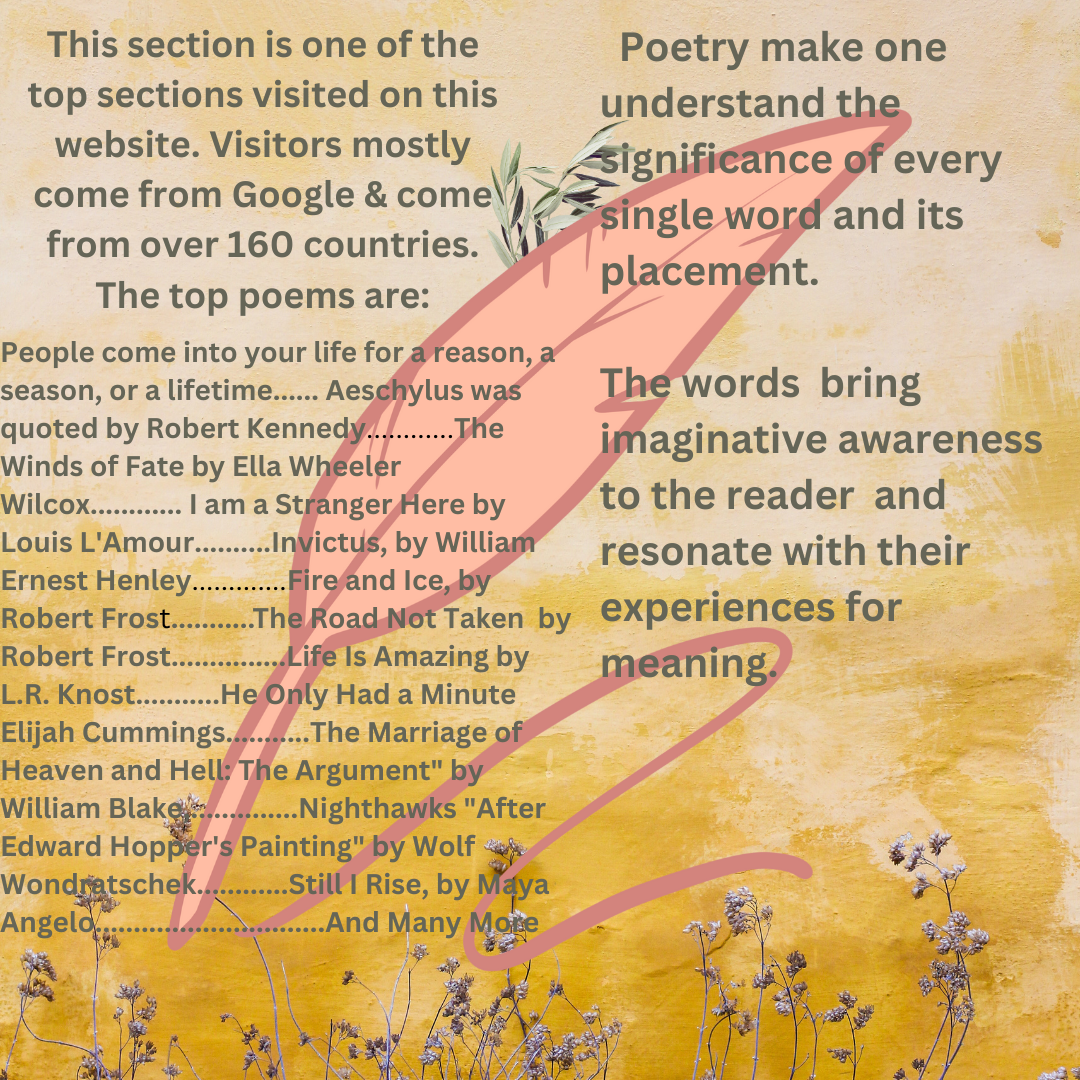"Do Not Go Gentle Into That Goodnight" -Dylan Thomas
Do not go gentle into that good night,
Old age should burn and rave at close of day;
Rage, rage against the dying of the light.
Though wise men at their end know dark is right,
Because their words had forked no lightning they
Do not go gentle into that good night.
Good men, the last wave by, crying how bright
Their frail deeds might have danced in a green bay,
Rage, rage against the dying of the light.
Wild men who caught and sang the sun in flight,
And learn, too late, they grieved it on its way,
Do not go gentle into that good night.
Grave men, near death, who see with blinding sight
Blind eyes could blaze like meteors and be gay,
Rage, rage against the dying of the light.
And you, my father, there on the sad height,
Curse, bless, me now with your fierce tears, I pray.
Do not go gentle into that good night.
Rage, rage against the dying of the light.
Analysis of Do Not Go Gentle Into That Good Night- by Brent M. Jones
Death will come to all of us and we evolve through life in stages of birth, then life ,and death. We start as "good men", often live as "wild men," but then finish as grave men."
The son is speaking in this poem to the father who seems to have accepted his coming death. In rage he tells his "grave" father on his deathbed to hold on.
The father is part of "the last wave" of his own generation which is almost gone, with only a few still alive. His memories are like a "green bay", bright and alive, where the younger generation is coming but where the father can't go back and change anything.
Blind eyes and bright lights suggest near death experiences by the old man while death still waits for him. Death is darkness and night and light is life.
The son pleads with the father, "Do not go gentle into that good night". The night can be considered as good, since it is so close and easy to obtain for the father, but that doesn't mean the son wants the father to go. He wants him to hold on and to "rage against the the dying of the light". If light goes away then the fathers life will end and it's presence proves his existence.
The father and the son may have accepted death by the end of this poem, but the son still wants more from the father. He asks, "Curse, bless, me now with your fierce tears" because your tears will show your love for me and curse your death for taking you..
This poem resonates with many. Sometimes death is only the final change and bits of life leave a little at a time with affirmatives and struggles and the poem tells us to rage and fight for life and sing in the sun of life.









